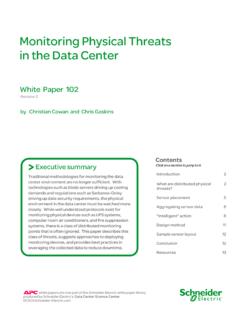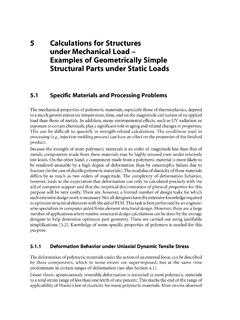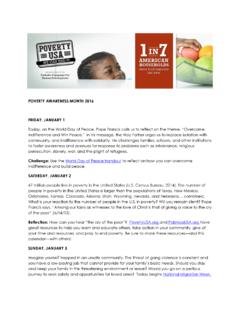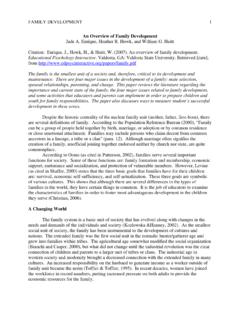Transcription of Miracles - Basic income
1 MiraclesA Preliminary StudyC. S. LewisTo Cecil and Daphne HarwoodAmong the hills a meteoriteLies huge; and moss has overgrown,And wind and rain with touches lightMade soft, the contours of the easily can Earth digestA cinder of sidereal fire,And make her translunary guestThe native of an English is it strange these wanderersFind in her lap their fitting place,For every particle that s hersCame at the first from outer that is Earth has once been sky;Down from the sun of old she came,Or from some star that travelled byToo close to his entangling , if belated drops yet fallFrom heaven.
2 On these her plastic powerStill works as once it worked on allThe glad rush of the golden Reprinted by permission of Time andTideContentsEpigraph1 The Scope of This Book2 The Naturalist and the Supernaturalist3 The Cardinal Difficulty of Naturalism4 Nature and Supernature5 A Further Difficulty in Naturalism6 Answers to Misgivings7 A Chapter of Red Herrings8 Miracles and the Laws of Nature9 A Chapter not Strictly Necessary10 Horrid Red Things 11 Christianity and Religion 12 The Propriety of Miracles13 On Probability14 The Grand Miracle15 Miracles of the Old Creation16 Miracles of the New Creation17 EpilogueAppendix A: On the Words Spirit and Spiritual Appendix B: On Special Providences About the AuthorOther Books by C.
3 S. LewisCreditsCopyrightAbout the Publisher1 THE SCOPE OF THIS BOOKT hose who wish to succeed must ask the rightpreliminary , Metaphysics, II, (III), all my life I have met only one person who claims to have seen aghost. And the interesting thing about the story is that that persondisbelieved in the immortal soul before she saw the ghost and stilldisbelieves after seeing it. She says that what she saw must havebeen an illusion or a trick of the nerves. And obviously she may beright. Seeing is not this reason, the question whether Miracles occur can neverbe answered simply by experience.
4 Every event which might claim tobe a miracle is, in the last resort, something presented to our senses,something seen, heard, touched, smelled, or tasted. And our sensesare not infallible. If anything extraordinary seems to have happened,we can always say that we have been the victims of an illusion. If wehold a philosophy which excludes the supernatural, this is what wealways shall say. What we learn from experience depends on the kindof philosophy we bring to experience. It is therefore useless to appealto experience before we have settled, as well as we can, thephilosophical immediate experience cannot prove or disprove themiraculous, still less can history do so.
5 Many people think one candecide whether a miracle occurred in the past by examining theevidence according to the ordinary rules of historical inquiry . But theordinary rules cannot be worked until we have decided whethermiracles are possible, and if so, how probable they are. For if theyare impossible, then no amount of historical evidence will convinceus. If they are possible but immensely improbable, then onlymathematically demonstrative evidence will convince us: and sincehistory never provides that degree of evidence for any event, historycan never convince us that a miracle occurred.
6 If, on the other hand, Miracles are not intrinsically improbable, then the existing evidencewill be sufficient to convince us that quite a number of Miracles haveoccurred. The result of our historical enquiries thus depends on thephilosophical views which we have been holding before we evenbegan to look at the evidence. This philosophical question musttherefore come is an example of the sort of thing that happens if we omitthe preliminary philosophical task, and rush on to the historical. In apopular commentary on the Bible you will find a discussion of the dateat which the Fourth Gospel was written.
7 The author says it must havebeen written after the execution of St Peter, because, in the FourthGospel, Christ is represented as predicting the execution of St Peter. A book , thinks the author, cannot be written before events which itrefers to . Of course it cannot unless real predictions ever occur. Ifthey do, then this argument for the date is in ruins. And the author hasnot discussed at all whether real predictions are possible. He takes itfor granted (perhaps unconsciously) that they are not. Perhaps he isright: but if he is, he has not discovered this principle by historicalinquiry.
8 He has brought his disbelief in predictions to his historicalwork, so to speak, ready made. Unless he had done so his historicalconclusion about the date of the Fourth Gospel could not have beenreached at all. His work is therefore quite useless to a person whowants to know whether predictions occur. The author gets to work onlyafter he has already answered that question in the negative, and ongrounds which he never communicates to book is intended as a preliminary to historical inquiry. I amnot a trained historian and I shall not examine the historical evidencefor the Christian Miracles .
9 My effort is to put my readers in a positionto do so. It is no use going to the texts until we have some idea aboutthe possibility or probability of the miraculous. Those who assumethat Miracles cannot happen are merely wasting their time by lookinginto the texts: we know in advance what results they will find for theyhave begun by begging the NATURALIST AND THESUPERNATURALIST Gracious! exclaimed Mrs Snip, and is there aplace where people venture to live above ground? I never heard of people living under ground, replied Tim, before I came to Giant-Land . Cameto Giant-Land!
10 Cried Mrs Snip, why, isn teverywhere Giant-Land? ROLAND QUIZZ, Giant-Land, chap use the word miracle to mean an interference with Nature bysupernatural Unless there exists, in addition to Nature,something else which we may call the supernatural, there can be nomiracles. Some people believe that nothing exists except Nature; Icall these people Naturalists. Others think that, besides Nature, thereexists something else: I call them Supernaturalists. Our first question,therefore, is whether the Naturalists or the Supernaturalists are here comes our first the Naturalist and the Supernaturalist can begin todiscuss their difference of opinion, they must surely have an agreeddefinition both of Nature and of Supernature.






